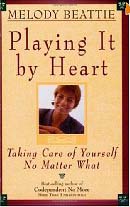
Crazy for God
How I Grew Up as One of the Elect, Helped Found the Religious Right, and Lived to Take All (or Almost All) of It Back
by Frank Schaeffer
Carroll & Graf Publishers, New York, 2007. 417 pages.
Starred review.
Frank Schaeffer is the son of Francis and Edith Schaeffer, founders of L’Abri and famous Christian writers. In college, I read Edith Schaeffer’s L’Abri, What Is a Family?, The Tapestry, Affliction, and Common Sense Christian Living. I bought a set of The Complete Works of Francis Schaeffer, but still haven’t read any of it!
My father was a fan of Francis Schaeffer’s writings, and my mother a huge fan of Edith Schaeffer’s. After reading Edith’s books, I dreamed of living that sort of life myself — living as a family in Europe, reaching searching souls for God! It sounded like a dream existence.
Frank Schaeffer (known as Franky then) did come and speak at my college, Biola University, when I was a student. I think he was promoting A Time for Anger, and he came across as very angry indeed. I pretty much dismissed what he had to say, and figured he must be a typical rebellious preacher’s kid, though I was still enthralled by his parents’ works. His mother spoke at a Ladies’ Tea at Biola, promoting her book Common Sense Christian Living, and I was further enraptured.
I should add that I still think of her way of looking at suffering, as presented in Affliction, as a wonderful paradigm for dealing with why God allows suffering.
In Crazy for God, Frank Schaeffer outlines his life growing up in Switzerland, his later involvement in the founding of the religious right political movement in America, and his search for some kind of peace.
In a lot of ways, I found his quest mirroring my own. I too grew up in a rather unusual Christian community — a family of thirteen children. I too ended up with liberal political views. Although I still attend an evangelical church, it is a church about community and much less hung up on exact statements of faith. It sounds very similar in attitude to the Greek Orthodox church where Frank Schaeffer has found a home. Like him, I find myself thinking of Christianity as a “journey to God, wherein no one is altogether instantly ‘saved’ or ‘lost’ and nothing is completely resolved in this life (and perhaps not in the next).” My belief that all will be saved eventually puts me at odds with the standard evangelical community he was once so much a part of and that I was once so much a part of. So I found his journey fascinating.
That perfect family life at L’Abri was not so perfect after all. Those family reunions that Edith Schaeffer wrote about as so idyllic were filled with angry fighting. Francis was an abusive husband, and Edith was not a tremendously respectful wife. Both were rather neglectful parents, sacrificing family life for “the work” and letting their son run wild. (Not that he didn’t enjoy that!)
He also points out that Francis and Edith were very open and accepting — at least for most of their lives. But they closed down that openness when they were catering to the American evangelical political movement. He has some scathing words about many American evangelical leaders, and points out some things about them that were downright strange.
He grew up in Europe, and when he got involved in American politics, he didn’t even really know America. His parents enjoyed European culture, and thought themselves a bit above your run-of-the-mill Americans. Francis Schaeffer’s book, How Shall We Then Live? was based on his wide knowledge of Western art and history. Having lived for ten years in Europe myself, I have some sneaking sympathies with him on these points.
I’m sure many hero-worshipers will be bitterly angry that Frank Schaeffer would say anything negative about his parents. He also says many positive things, but is trying to write about his own strange childhood. He makes the point that we are all human, that the perfect “common sense Christian living” may have its own flaws, under the surface, if you look more closely.
This book was fascinating and eye-opening. I appreciate the look at someone else’s thoughts about what it really means to live for God, and making sense of his own life’s path and life’s work. In many ways, with the collapse of my marriage, I am looking at some of the same issues. So I appreciated this chance to get someone else’s perspective, as well as to learn that what I thought of as idealistic perfection in my youth didn’t actually match that in reality.
I’m coming to think that a lot of what God wants from us is to live life as the person he made us to be: Enjoying his blessings and doing the work He made us best suited for, whether it has anything to do with “leading others to Christ” or not. I doubt that Frank Schaeffer would word it exactly that way, but I felt that much of his spiritual journeying mirrors my own, and I appreciate the insights from a fellow traveler.
Buy from Amazon.com
Find this review on the main site at:
www.sonderbooks.com/Nonfiction/crazy_for_god.html








